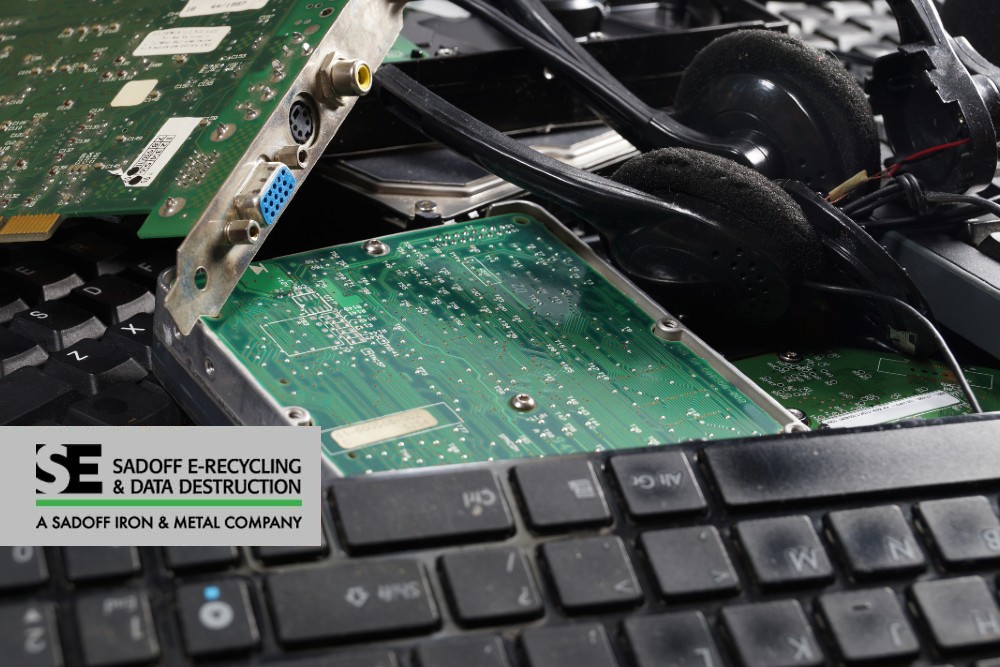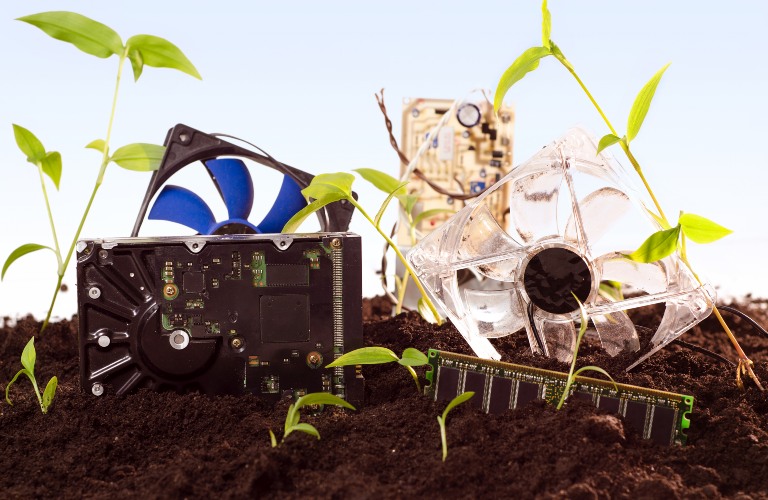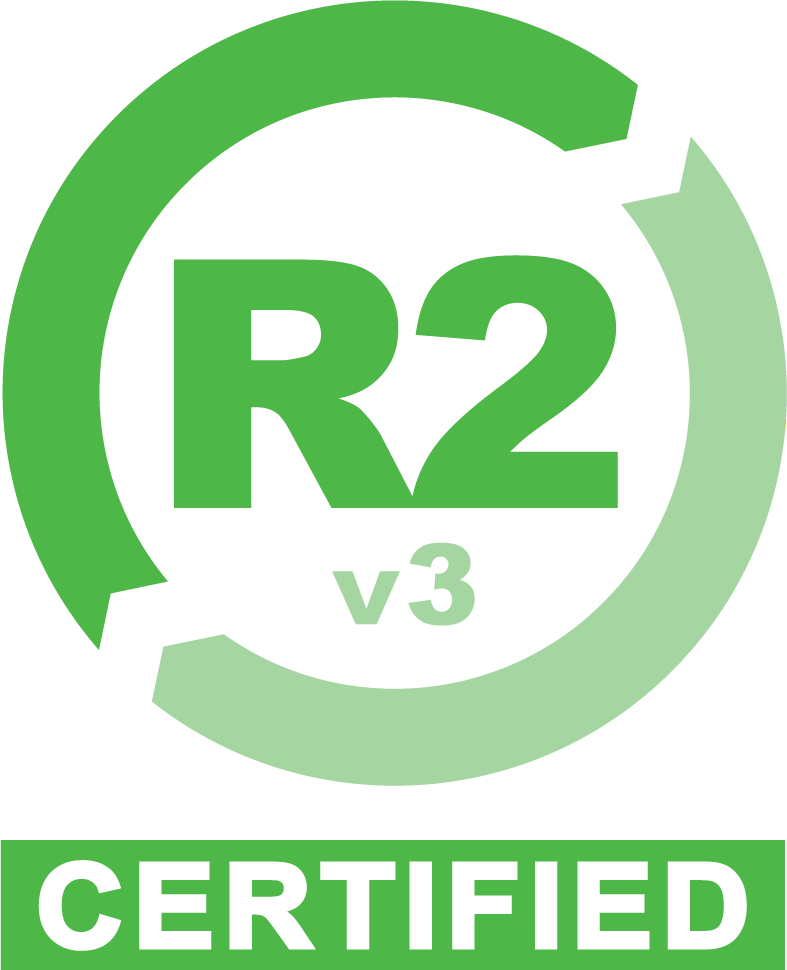Why is Most Electronic Waste Not Recycled?
 16
16 Feb
We live in an age of rapid technological advancement. Each year, new smartphones, laptops, tablets, and countless other gadgets take center stage, promising greater power and more features. But this relentless innovation comes at a price: electronic waste, or e-waste. Discarded or obsolete electronics create one of the fastest-growing waste streams in the world. It’s estimated that globally we generate over 50 million tons of e-waste every year. Sadly, shockingly little of it is handled responsibly.
Why Don’t We Recycle More E-Waste?
With heightened awareness of environmental issues, you might assume that most e-waste finds its way to recycling facilities. Unfortunately, the reality is far from ideal. Let’s break down the key reasons why recycling electronics remains such a challenge:
Hazardous Materials
Packed inside your old TV, computer, or phone are a host of potentially toxic substances. Lead, mercury, cadmium, and flame retardants can leach into soil and water if e-waste ends up in landfills. Specialized processes are needed to handle these hazardous materials safely, adding to the cost and complexity of recycling electronics.
Complex Designs
Unlike easily recyclable materials like paper or some plastics, electronic devices are a complicated mix of different metals, plastics, and glass. Disassembling these devices into individual components can be highly labor-intensive and time-consuming. This process isn’t always economically viable, particularly when dealing with older or cheaper electronics.
Read More: Can You Recycle or Refurbish Laptops?
Rapid Obsolescence
The pace of technological innovation means many devices have incredibly short lifespans. When combined with trends like planned obsolescence, people replace their electronics frequently. This leaves recyclers struggling to keep up with both the volume and the ever-changing types of e-waste being generated.
The Export Problem
Developed countries often ship e-waste to developing countries where environmental regulations and labor standards are weaker. Informal “backyard” recycling operations pose severe health risks to workers and surrounding communities while harming the environment.
Lack of Awareness and Effort
Many people aren’t fully aware of the potential harmful effects of improper e-waste disposal. They might toss old electronics in the trash, not realizing the consequences. Further, even well-intentioned individuals or businesses may find it inconvenient or lack knowledge of accessible recycling options.
The Consequences of Not Recycling E-Waste
E-waste that’s not recycled properly presents several dangers:
 Human Health Hazards—Exposure to toxins from e-waste can lead to a range of serious health problems including respiratory issues, cancer, and reproductive harm. These risks are highest for those living near landfills or involved in informal e-waste handling.
Human Health Hazards—Exposure to toxins from e-waste can lead to a range of serious health problems including respiratory issues, cancer, and reproductive harm. These risks are highest for those living near landfills or involved in informal e-waste handling.- Environmental Pollution—Toxic chemicals leaching from e-waste can contaminate soil, water sources, and entire ecosystems.
- Missed Opportunity—E-waste contains valuable resources, including gold, copper, and rare earth metals. If recycled, these materials could be recovered and reused, offsetting the need for environmentally damaging mining operations.
Read More: What’s the Difference Between E-Waste and E-Scrap?
Towards a Brighter Future for E-Waste: Partnering With Sadoff
The challenges of e-waste require concerted action. Businesses play a massive role in generating electronic waste and therefore hold the key to responsible disposal and recycling. That’s where Sadoff E-Recycling & Data Destruction can step in.
We specialize in secure, environmentally compliant e-waste solutions tailored for businesses. Here’s why partnering with Sadoff makes a difference:
- Comprehensive Recycling—We go beyond simple device disposal. Our processes prioritize recovering valuable materials to re-enter the supply chain, minimizing environmental impact.
- Certified Data Destruction—Protecting your sensitive business data is our priority. We utilize rigorous data destruction methods that exceed industry standards to give you peace of mind.
- Streamlined B2B Solutions—We understand the unique needs of businesses. We offer customized pickup and disposal services, convenient container options, and transparent reporting to fit seamlessly into your workflow.
- Environmental Accountability—Our commitment to sustainability means a brighter future for e-waste. By choosing Sadoff, your business actively contributes to responsible electronics management.
Nationwide Data Center Decommissioning Services
Join the growing movement of responsible businesses. Contact Sadoff E-Recycling & Data Destruction today to explore how we can partner in safeguarding your data and reducing your company’s environmental footprint.
Categorized in: Electronics Recycling




 Google map directions
Google map directions
 Google map directions
Google map directions
 Google map directions
Google map directions
 Google map directions
Google map directions
 Google map directions
Google map directions
 Google map directions
Google map directions
 Google map directions
Google map directions